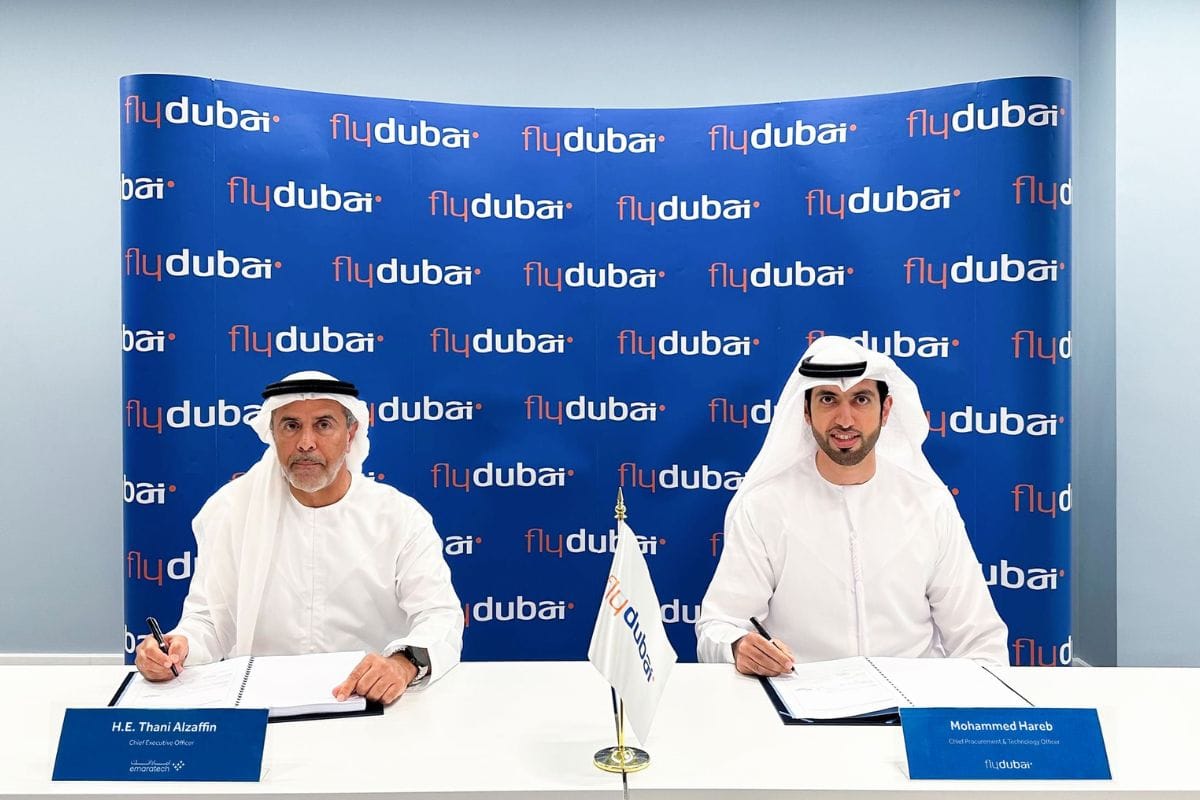In a significant advancement in aviation technology, flydubai has introduced a state-of-the-art biometric smart gate system at its Airport Operations Centre, a collaboration with the UAE-based tech firm emaratech. This initiative aims to expedite immigration processes for its pilots and cabin crew, reflecting a broader trend in the airline industry towards efficiency and innovation.
The biometric system employs advanced facial recognition technology, artificial intelligence, and real-time data integration to facilitate a paperless and seamless immigration experience. With increasing passenger volumes and travel demands, particularly during peak seasons, this upgrade is poised to alleviate the time constraints that often plague the immigration process.
Thani Alzaffin, the Group CEO of emaratech, expressed enthusiasm about the partnership with flydubai, stating, “We are proud to partner with flydubai in pioneering a next-generation, paperless immigration experience.” He emphasized the importance of the integration between flydubai’s internal systems and the relevant immigration platforms, which is vital for the operational success of the project. This synergy between technology and operational requirements underscores the necessity of real-time data utilization in contemporary aviation practices.
The initiative not only streamlines the flow of personnel but also aligns with flydubai’s ongoing commitment to incorporating cutting-edge technologies across its operations. Mohammed Hareb AlMheiri, the Chief Procurement and Technology Officer at flydubai, noted that the new system is integral to improving punctuality, security, and the overall experience for crew members. By adopting such innovations, flydubai is not only enhancing operational efficiencies but is also setting a standard for industry practices in the Gulf region and beyond.
Currently, flydubai operates a diverse fleet of 89 aircraft and services over 135 destinations worldwide. With a dedicated workforce of more than 6,400 employees, which includes 1,300 pilots and 2,500 cabin crew, the airline is positioned as a key player in enhancing air travel connectivity, not only for passengers but also for the seamless operation of airline staff.
The implementation of biometric smart gates is reflective of a broader shift towards hyper-automation in the aviation sector, where delays caused by traditional check-in and immigration procedures are becoming increasingly intolerable in an environment that demands speed and efficiency. As travelers increasingly seek more streamlined experiences, airlines are responding by investing in technology that promises to make travel more user-friendly.
This initiative is particularly pertinent in the context of the ongoing recovery of the global tourism sector following the COVID-19 pandemic. As travel restrictions ease and passenger numbers rebound, airlines must enhance their operational resilience to meet the demands of modern travelers. The introduction of smart gates at flydubai represents a proactive measure in this direction.
The implications extend beyond merely improving immigration processes; they signify a commitment to fostering a more sustainable operational model. With increasing global discourse surrounding environmental responsibility, reducing paper usage through a fully digital immigration process aligns well with international sustainability goals.
In summary, flydubai’s introduction of biometric smart gates in partnership with emaratech marks a notable milestone not just for the airline, but for the aviation industry at large within the Gulf region. By prioritizing technological advancement and operational efficiency, flydubai is reshaping the future of air travel. The commitment to enhancing both crew and passenger experiences is an encouraging indicator of what can be achieved when aviation companies embrace innovation. As the industry continues to evolve, one can anticipate further advancements that will redefine the travel experience in the years to come.
Tags
#BusinessNews #StartupsEntrepreneurship #UAE

